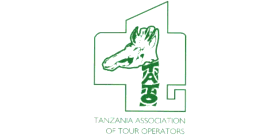 How Tanzania has improved tourists security
How Tanzania has improved tourists security
A new study has revealed that Tanzania’s security and safety for tourists has been significantly improved, offering a ray of hope for the multi-billion-dollar industry. Tanzania is one of the top tourist destinations in the world, attracting nearly 1.5 million visitors, who contribute $2.4 billion annually. This is all thanks to its amazing wilderness, incredible natural landscapes and friendly people.
The evaluation of the Tourists’ Safety and Security in Tanzania Project, co-implemented by the Tanzania Association of Tourism Operators (TATO) and Tanzania Police Force, shows that there have been several regulatory reforms leading to improved security. “Besides the regulatory reforms, there has been a significant shift in the mind-set of all participating actors” indicates Emmanuel Sulle and Wilbard Mkama, in the report.
It is understood that through the Police Force and Auxiliary Services Act, Cap 322 [R.E, 2002] the police force has a central mandate of tourist security. Due to the institutional reforms, in 2013/14, the Act was used to establish the diplomatic and tourism police unit, responsible for the security of tourists and diplomats visiting the country.
The reform also saw the creation of National Tourism Commissioner‘s posts at the Police Headquarters and at regional levels who are credited to play a significant role in ensuring tourist safety and security. For instance, the Arusha Unit has greatly increased the patrol in and near the northern tourism circuit in its latest efforts to ensure that tourists enjoy maximum security throughout their stay.
Key among these successes include a shift in the mind-set of all participating actors. For example, in the northern zone, where TATO-led initiatives have been implemented, tourists are now handled separately by special police officers. In order to facilitate the realization of the project, TATO members contributed financial and in-kind resources to build the Arusha tourism and diplomat’s police station and four police checkpoints along the Kilimanjaro International Airport (KIA) to Ngorongoro Crater highway.
They further contributed cars for highway patrols and installed furniture and Internet services in a bid to make the police station fully-fledged tourism and diplomatic post. The numbers of visible and covert police patrols on major highways from airports and hotels to high tourist destinations, such as Serengeti and Ngorongoro Crater, has increased over time.
